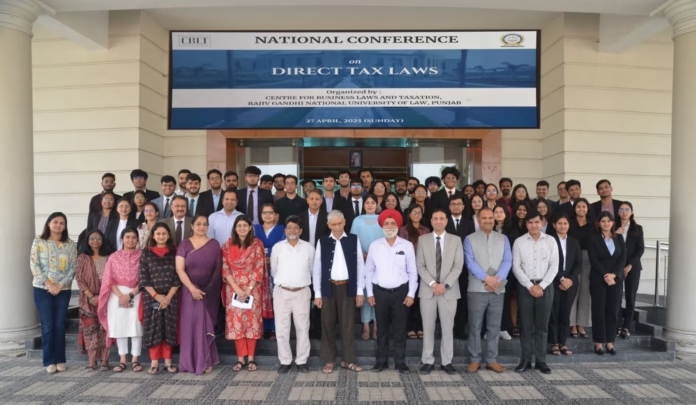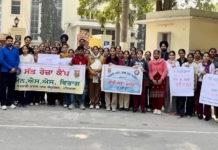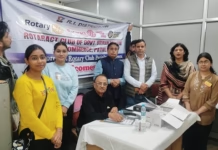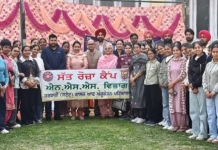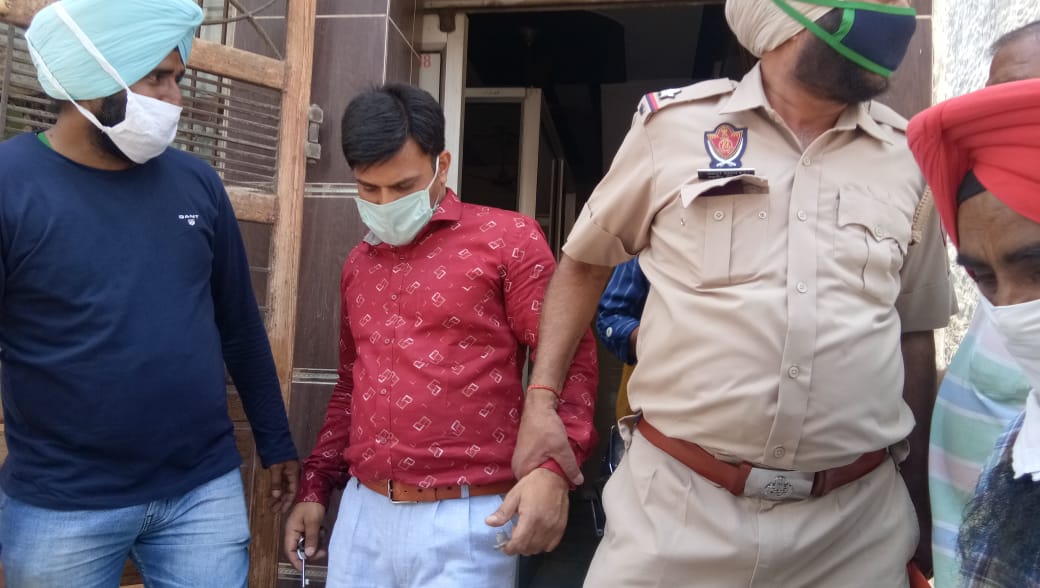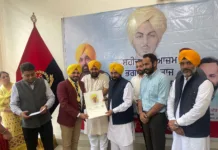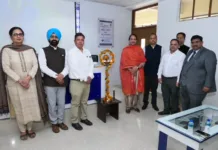National Conference on Direct Tax Laws held at Rajiv Gandhi National University of Law
Kanwar Inder Singh/ royalpatiala.in News/ April 27,2025
The Centre for Business Laws and Taxation (CBLT) at Rajiv Gandhi National University of Law (RGNUL), Patiala, Punjab organized a National Conference on Direct Tax Laws on 27 th April 2025 in hybrid mode. The conference provided providing a vibrant platform for academicians, legal practitioners, researchers, and students to deliberate upon contemporary issues and developments in the domain of direct taxation.
Professor (Dr.) Sukhpal Singh, Professor at IIM, Ahmedabad and former Director General of the Centre for Research in Rural and Industrial Development (CRID, Chandigarh) and a renowned expert on agricultural taxation, provided a comprehensive analysis of the need for imposing tax on agricultural income in India, discussing its historical context, policy implications and the scope for future reforms to integrate the agricultural sector more effectively into the direct tax framework. He stressed that the time has come to impose direct tax on agricultural income because the exemption of agricultural income from tax has been misused by corporate and non-corporate tax payers. He highlighted that in Punjab 91% of the land is cultivated by 33% of the farmers whereas 67% of the farmers are cultivating only 9% of the land. This highlights a troubling issue whereby large landowner who are financially well-off but fall beyond the direct taxation framework.
Professor (Dr.) R.S. Ghuman, an eminent economist and a Professor of Eminence at Guru Nanak Dev University, delivered an insightful lecture on the complexities inherent in direct tax laws, highlighting issues related to compliance, administrative challenges, and the dynamic nature of tax jurisprudence. He highlighted the need for a complete overhaul of the direct tax law. He emphasized the enactment of bill on Direct Tax Code which is pending for long. Prof. Ghuman highlighted the lacunas in the present income tax law. He emphasized that the mind-set and attitude of the tax department is required to be improved. He also stressed on the importance of income tax in Centre-State Relations. He called for the rationalisation of income law on the basis of admitted principles of taxation
Prof. (Dr.) Jai Shankar Singh, Vice Chancellor of the University inaugurated the national conference. He emphasized that the direct tax structure of the country is extremely complicated. He underscored the need for simplifying the same. He stated that it is a matter of grave concern that in such a vast country, the number of taxpayers is much less and that there are various loopholes in the tax system which hinders the growth of the tax collection. He further referred to Dr. B.R Ambedkar and Nani Palkhivala to highlight that tax policy must be aimed at the welfare of the poorer sections of the society.
Prof. (Dr.) Naresh Kumar Vats quoted Kalidasa detailing the purpose of taxation. He stated that with India’s economic growth ambitions expanding and tax administration undergoing technological and procedural reforms, the law surrounding direct taxes is also evolving-sometimes rapidly, sometimes contentiously. The faceless tax regime, the judicial interpretations of exemptions and deductions, the growing discourse on taxpayer rights and India’s participation in global tax dialogue frameworks all point to the importance of staying engaged with the theoretical and practical aspects of this field.
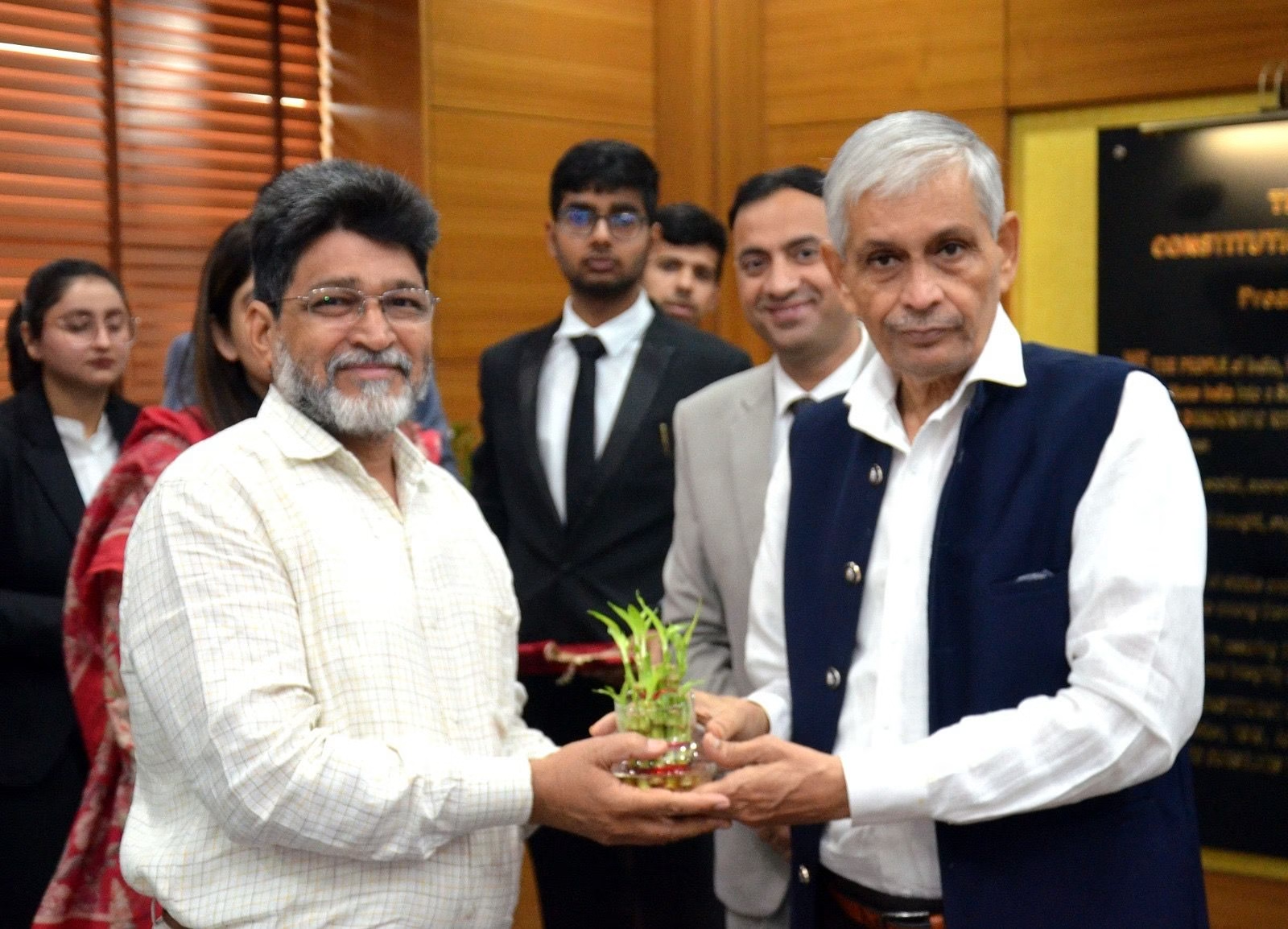
Following the inaugural address, a panel discussion on the theme “complexities and opportunities in direct tax laws” was conducted. The discussion provided a critical forum for examining the new Income Tax Bill, 2025, the challenges posed by evolving tax administration, taxation-insolvency related issues and the need for trust between government and taxpayers. Panel discussed wide range of issues including the domestic taxation regime, cross-border taxation challenges, digital economy taxation, BEPS (Base Erosion and Profit Shifting), transfer pricing and the impact of recent judicial pronouncements on direct tax jurisprudence. Panel discussion highlighted that there is a need to check cash economy. The cash in circulation has increased from 14 lakh crore from demonetization stage to Rs. 36.36 lakh crore as on March 31, 2025. Dr. Manoj Kumar Sharma pointed out that in a country of 140 crores only 9.11 crore persons have filed ITR in 2024-25. Therefore, there is a need to increase the tax base. He further pointed out that the direct taxes received from the corporate sector constitute only 44% of the net direct tax collection whereas non-corporate tax payers are contributing 56% which is an anomaly keeping in view the increase in the size and number of corporations. There is, thus, a need to increase the coverage of direct tax code. He emphasized that a fair tax policy is required to flush out black economy and to deal with taxation of gig economy and platform economy.
National Conference on Direct Tax Laws held at Rajiv Gandhi National University of Law. Fifty-two papers on various aspects of income tax law were presented in five technical sessions. The technical sessions were chaired by a distinguished Dinesh Kumar, CA Anil Katia, CA Abhinav Vijh, Dr. Manoj Sharma and Lt. Col (Dr.) Manipal Lather. Senior Advocate Ajay, Advocate Sandeep Chilana, Advocate Harish Shukla, Advocate Sidharth Aggarwal, Advocate Ishita, Advocate Ananya Kapoor.
The session chairs provided invaluable feedback, enriching the quality of discussions and offering critical perspectives to the young researchers for refining their scholarly pursuits. The conference was attended by a large number of participants from various law schools, universities and legal practice backgrounds. The event witnessed rigorous academic deliberations, inter-institutional interactions and a robust exchange of ideas, contributing meaningfully to contemporary tax law scholarship. The Conference concluded with recommendations to the government regarding use of Artificial intelligence in tax compliance and enforcement, building trust among the tax payers, incentivizing voluntary compliance, increasing tax coverage etc. Dr. Ivneet Kaur Walia delivered vote of thanks.

